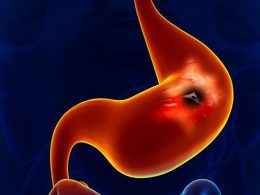When it comes to disease prevention, many people focus on exercise and medical checkups, but proper nutrition is just as important. A diet that is rich in nutrients can help to reduce the risk of chronic illness and promote overall health. Here are some of the key nutrients and the role they play in disease prevention.
Antioxidants
Antioxidants are compounds that help to protect cells from damage caused by free radicals. Free radicals are molecules that are produced when the body breaks down food or is exposed to environmental toxins such as cigarette smoke and pollution. They can cause damage to cells and contribute to the development of chronic diseases such as cancer, heart disease, and Alzheimer’s disease.
Some of the key antioxidants include vitamin C, vitamin E, and beta-carotene. These nutrients are found in fruits and vegetables such as citrus fruits, berries, leafy greens, and carrots.
Omega-3 Fatty Acids
Omega-3 fatty acids are a type of fat that is essential for good health. They are found in oily fish such as salmon, mackerel, and sardines, as well as in walnuts and flaxseeds. Omega-3s have been shown to help reduce inflammation, which is a key factor in the development of many chronic diseases, including arthritis, heart disease, and certain types of cancer.
Fiber
Fiber is an important nutrient that is found in fruits, vegetables, whole grains, and legumes. It helps to promote digestive health and can also help to reduce the risk of chronic diseases such as heart disease, diabetes, and certain types of cancer.
Fiber works by slowing down the absorption of carbohydrates, which can help to regulate blood sugar levels. It also helps to reduce cholesterol levels and promote feelings of fullness, which can help with weight management.
Calcium
Calcium is a mineral that is essential for strong bones and teeth. It is found in dairy products such as milk, cheese, and yogurt, as well as in leafy greens such as kale and collard greens.
Getting enough calcium is important for preventing osteoporosis, a condition in which the bones become weak and brittle. It can also help to reduce the risk of high blood pressure and certain types of cancer.
Conclusion
Proper nutrition is essential for good health and can help to reduce the risk of chronic diseases. By including a variety of nutrient-rich foods in your diet, you can ensure that you are getting the vitamins, minerals, and other nutrients that your body needs to function properly. Talk to your doctor or a registered dietitian to determine the best diet for your individual needs and goals.












